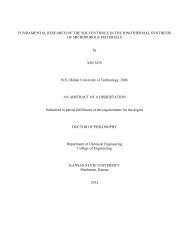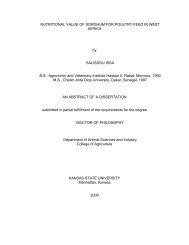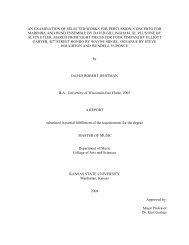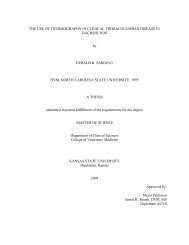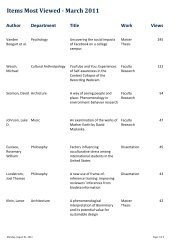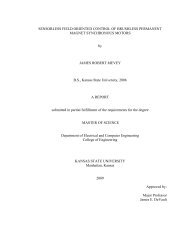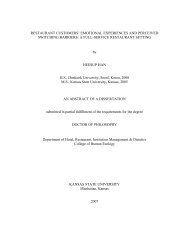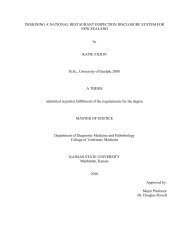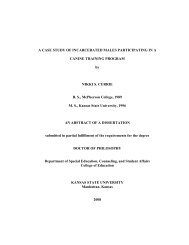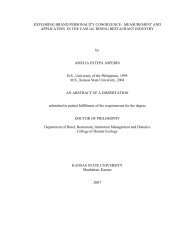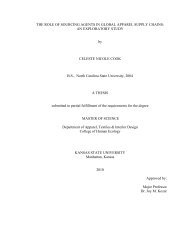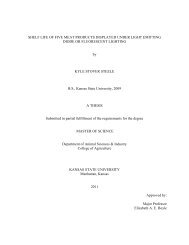SELFISH INTENTIONS - K-REx - Kansas State University
SELFISH INTENTIONS - K-REx - Kansas State University
SELFISH INTENTIONS - K-REx - Kansas State University
You also want an ePaper? Increase the reach of your titles
YUMPU automatically turns print PDFs into web optimized ePapers that Google loves.
In the United <strong>State</strong>s, legal authorities wanted to maintain the integrity of the marriage<br />
union; therefore, early divorce laws made it difficult to get divorced. When two individuals, a<br />
man and a woman, signed a marriage contract, their identities as two individuals became<br />
secondary to their identities as husband and wife. The “unit” established by the marriage was<br />
now a matter of public interest and of greater social importance than either individual. Legally,<br />
legislatures writing the laws and the courts enforcing them did their best to maintain this unit.<br />
When one member of the unit petitioned for divorce, in effect they were claiming the actions of<br />
the other member of the unit had violated the legal and sacred bonds of that unit. In Man and<br />
Wife in America, Hendrik Hartog explains the dominant legal thought of the period:<br />
Divorce laws belonged to the public, not to the parties themselves. They were not<br />
intended to allow couples to escape identities assumed in marriage. Divorce<br />
punished the guilty for “criminal” conduct. Conversely, divorce allowed an<br />
“innocent” spouse to escape the moral contamination that might accompany<br />
continued cohabitation with a guilty spouse. In a world where marital unity<br />
meant something, it was important that divorce exist. At the same time, it was<br />
still more important that divorce not be understood as a form of voluntary exit<br />
available to all married couples. It was, wrote Schouler, because marriage was<br />
‘not on the footing of ordinary contracts, that husband and wife’ could not, ‘on<br />
principle, compromise, arbitrate, or modify their relationship at pleasure.’ Or end<br />
it. 4<br />
<strong>Kansas</strong> law did not care whether Mary Elizabeth and Charles Lease had mutually agreed to end<br />
their marriage, nor did the law care whether either individual was “happy.” What mattered was<br />
whether one of them had so violated their status as husband or wife that the social institution of<br />
their marriage was irreparably destroyed. Someone had to be guilty.<br />
4 Hendrik Hartog, Man and Wife in America: A History, (Cambridge: Harvard <strong>University</strong> Press, 2000), 75-76.<br />
x



